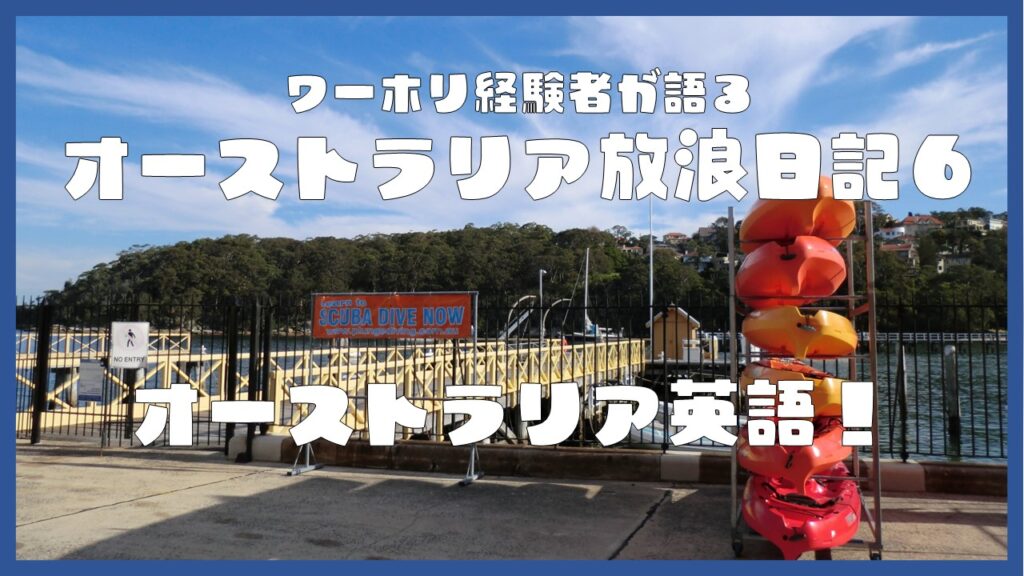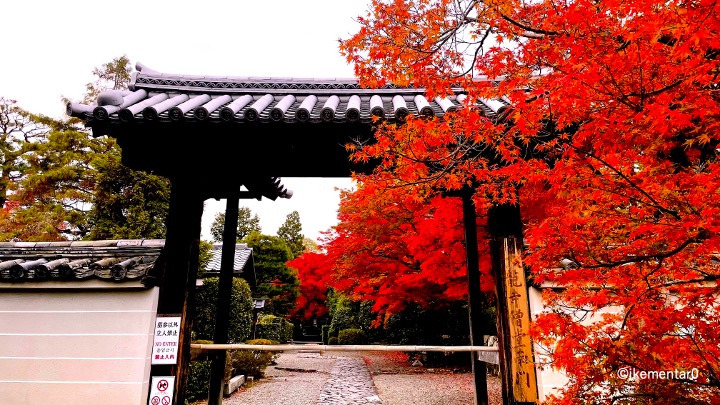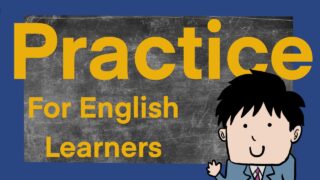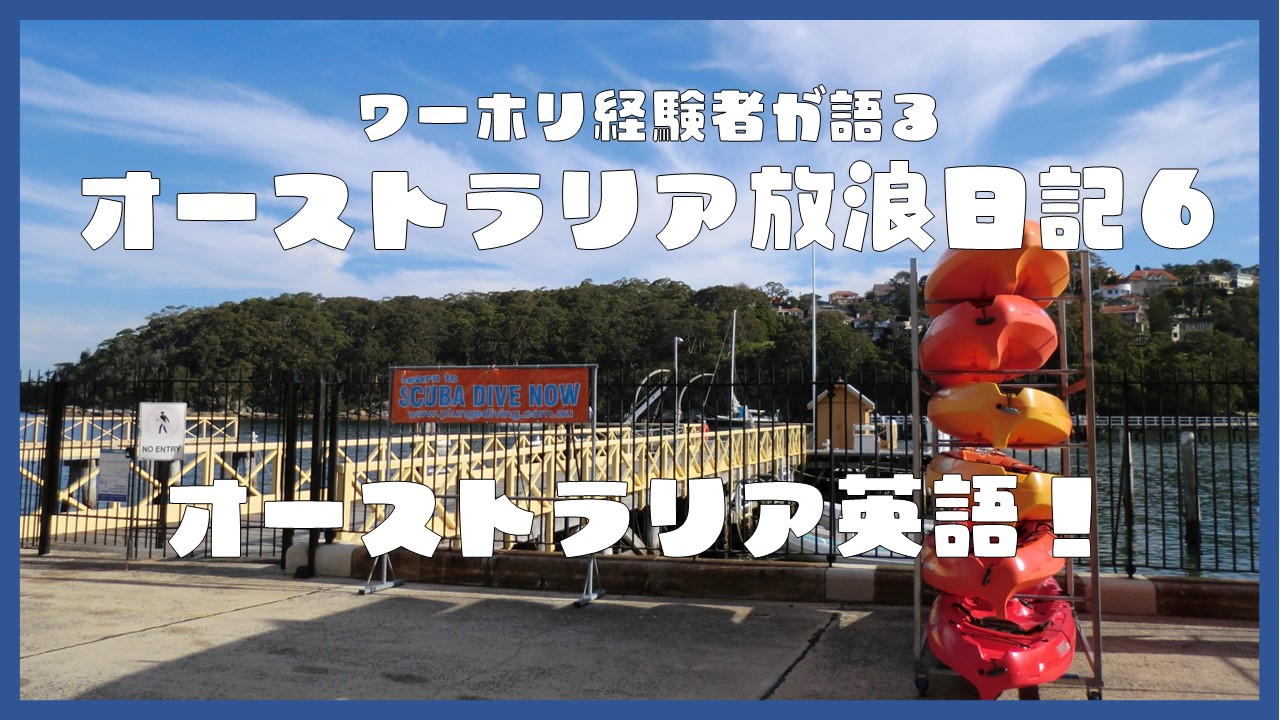

この記事ではワーホリ6週目の生活模様が分かる記事になっています。過去に書いた日記をもとに、シドニー生活だけでなく、英語学習になるように書いています。英語力を向上したい!ワーホリ準備中!など、様々な方々の助けになれば幸いです!
「留学はお金がかかる」というイメージはもう古い!?格安留学サービス「スマ留」なら従来の最大半額で海外留学が可能です!ネイティブキャンプ6ヶ月利用可能のサポートも魅力的です!

まずはホームページでスマ留をチェック!
格安の長期留学・ワーホリなら|夢カナ留学です!実質0円でオーダーメイド留学が可能です。出国前のサポートも手厚く、日本人が少ない語学学校を探してくれるのも魅力です。

現地で英語環境に飛び込むのは大切です!
- The 36th day of my stay in Australia
- 故郷とシドニーの違い in Englihs
- 【おまけ】京都の紅葉が見頃です!!ー11月21日(日)撮影ー
- The 37th day of my stay in Australia
- The 38th day of my stay in Australia
- 複数形について
- The 39th day of my stay in Australia
- 発音・意外と迷う英単語
- The 40th day of my stay in Australia
- 「値段を表す形容詞」ー(安い)→(高い)の程度ー
- The 41st day of my stay in Australia
- オーストラリアの英語スラング
- The 42nd day of my stay in Australia
- ワーホリは準備が命!
- 最後に
The 36th day of my stay in Australia

オーストラリア生活36日目。この日の英語の授業では、「生まれ故郷とシドニーの違い」について、話す練習をしました。その授業を通して、改めて日本の魅力に気づくことができました。そこで今回のテーマは「故郷とシドニーの違い」でいきましょう!
ーthe 36th day of my stay in Australiaー
In the third English lesson, we described the difference between my hometown and Sydney, so it was a little more complex than we did yesterday. My English teacher pointed out both pronunciation and grammar, so it was good for me. After the lesson, my Korean friend asked a question. She wanted to know the difference between Katakana and hiragana. I couldn't answer the question clearly in English, but I was interested to know about that in detail.

それでは、便利な英語表現からチェックしていきましょう!
*describe 動「〜を言い表す、説明する、描写する」
*point out 「〜を指摘する」
*clearly 副「はっきりと、明瞭に」
*in detail 「詳しく、詳細に」

ワーホリするなら「日本とその国の違いを考える」「それぞれの魅力に気づく」。こういった視点はとても大切ですね。そしてそれが面白い!と感じるなら、英語の道を突き進みましょう!

最後に最後に韓国出身の友達が「ひらがなとカタカナって何が違うの?」と聞いてきました。これが意外に難しく、英語で説明できず!このテーマも面白そうなので、近々取り上げていきたいと思います。
故郷とシドニーの違い in Englihs
違いを挙げればキリがありませんので、国際的な視点から1つだけ考えました。
The difference between the 2 cities is the reason why people from all over the world come. The reason for the people who come to Kyoto is for sightseeing. Some want to see famous temples and shrines with autumn color of leaves. Others want to get dressed up in kimono and walk with it in the city. The reason for the people who come to Sydney is for working or learning English. 「2つの都市の違いはなぜ世界中の人々が来るのかという理由です。京都に来る人たちの理由は観光です。有名なお寺や神社を紅葉とともに見たい人もいれば、着物を来て街を歩きたい人もいます。シドニーに来る人の理由は仕事か英語です。」

おぉ、なるほど!確かに京都には世界中からたくさんの人が来てくれます。シドニーにもたくさんの人がいますが、観光というよりも仕事や語学の勉強のために行く人が多いんですね。

面白い視点ですね。こういった気づきが、国際人としての第1歩となりそうです。英語も見ていきましょう!
*sightseeing 名「観光」
*autumn color of leaves 「紅葉」
*get dressed up in kimono「着物を着る」
【おまけ】京都の紅葉が見頃です!!ー11月21日(日)撮影ー




一押しはコレ!デジタル1眼のサブカメラとして大活躍します!
The 37th day of my stay in Australia

オーストラリア生活37日目。この日はダイビングのライセンスを取得するためのテストがありました。実習形式のテストと筆記テストの2つ。泳ぐのは苦手ですが、友達の支えがあり、ダイビングのライセンスをなんとか取得することができました。今回のテーマは「新たな趣味」でいきたいと思います。
ーThe 37th day of my stay in Australiaー
I took a diving lesson with my friends all day long. We went to the sea with my diving coaches. As soon as we arrived at the sea, we changed our casual wear into diving gear. It was my first time to dive into the sea, so I was excited.
We reviewed the last lesson before diving, then we started going underwater. The most exciting thing was that I could see some fish in the sea for the first time. I felt I was swimming with them. It was like a dream. After the diving, I took a test for the diving license for divers. I managed to pass it.
*all day long 「1日中」
*as soon as sv 「sがvするとすぐに」
*casual wear 「普段着」
*diving gear 「潜水服」
*review 動「〜を回顧する、振り返る」
*go underwater「水の中に潜る」
I managed to get the diving license. I decided to go diving in Japan after I left Australia. If I have another chance to go underwater, I want to enlarge my circle of diving friends. 「ダイビングのライセンスをなんとか獲得しました。オーストラリアを出れば日本でもダイビングをしたいです。もしまたチャンスがあれば、ダイビング友達の輪を広げたいです。」
「新たな趣味」を言うのも英語ではいくつか表現があります。
*take up a new hobby
*learn a new hobby

どちらも「新しい趣味を始める」という意味の表現です。新しい趣味を見つけようとする人は是非使ってみましょう。

泳ぐことが苦手だったので、ダイビングをキッカケに初めて海中の世界を目にしました。海中で呼吸をして、魚と泳ぐ感動は非常に大きかったです。帰国後数年経ち、仕事が忙しく、ダイビングをする機会は未だにありませんが、水族館で魚を見たり、新しい何かにチャレンジする時などは、ダイビングの経験を思い出し、心がワクワクします。
The 38th day of my stay in Australia

オーストラリア生活38日目。この日はダイビングの実技試験があり、海に潜ってきました。泳ぎがにがってな著者にとって、海中の景色はまさに夢のようでした。オーストラリアの海でたくさんの魚と泳ぐという貴重な体験をすることができました。
英語で魚や海の生物を言う時や日記に書く時に、「これは複数形?」と迷うことがたくさんありました。そこで今回はのテーマは「複数形」でいきたいと思います。
ーThe 38th day of my stay in Australiaー
I felt I became a scuba diver today. I meant I had a practical exam for diving. My diver friends and I went to Chowder Bay to dive there, then we met some office stuff. I learned a lot of skills that divers need during diving.
I dived into the see, then I saw an octopus, a squid, a sea horse and a sea bream. Before going home, we took a commemorative photo. I was not good at swimming, so I was insecure about swimming. I spent precious time like a dream.
My new goal as a diver is to take photos in the sea with fish.
*mean 動「〜を意味する」過去形は”meant”で「mént (メント)」と発音します。
*practical exam 「実技試験」
*octopus 名「タコ」
*squid 名「イカ」
*sea horse 名「タツノオトシゴ・海馬」
*sea bream 名「タイ科の魚」”red sea bream”で「マダイ」
念願の「魚と泳ぐ」という夢の時間を過ごせたわけです。喜びをもっと英語で表現できたら良いですね。「オーストラリア放浪日記33」にも「嬉しい・感動した」について詳しく書いています。
I was over the moon because I won his endorsement. 「彼の承認を勝ち取ったのでめっちゃ嬉しかった」 *over the moon「天にも登る気持ち!嬉しい」
I was on cloud nine because he allowed me to change my English class. 「彼が私の英語のクラスを変えて良いと言ったのでとても嬉しかった。」「とても嬉しい *cloud nineは積乱雲のこと。非常に高く上がる様子から」
複数形について
名詞を複数形にするには、基本的には”s”をつけます。しかし、動物や魚など、英単語の由来によって形自体が変わるものも多くあります。また形が変わらないもの、「”a”を付けないって習ったケド、実際どうなの?」的な使い方も少し紹介します。
| 単数形 | 複数形 | 単数形 | 複数形 |
| octopus (タコ) | octopuses・octopi | salmon(鮭) | salmon |
| fish(魚) | fish | fish(魚の種類) | fishes |
| carp(コイ) | carp | tooth(歯) | teeth |

“fish”が2パターンありますね。

そうです。その昔、魚は「群れ」を表す英単語だったようです。何匹いても複数形も”fish”となります。でも種類を表すときには1種、2種となります。つまりスイミーのように1匹だけ赤い魚がいる場合には”a fish”となりますね。
The 39th day of my stay in Australia

オーストラリア生活39日目。この時期くらいから、知っているつもりだったけど、間違っていた英単語によく出会うようになりました。特に発音については自分の知識不足を痛感しました。今回のテーマは「発音・意外と迷う英単語」でいきたいと思います。
ーthe 39th day of my stay in Australiaー
There was a new classmate in our English lessons today. She took part in a class for the first time. She looked nervous and could not follow the English lesson today.
After the lesson, I went to the office with A in order to get a new textbook of scuba diving and take a short lesson of it. At the end of the lesson, we finally got a certificate of scuba diving. It meant we became an open water diver at last. I was also glad my friends became a diver, too. We are supposed to take an advanced lesson. I'll try my best.
*nervous 形「神経をピリピリさせている、緊張している」
*at the end「最後には、ついに」
*certificate 名「修了書、検定書」
*mean 動「〜を意味する」
*at last 「ついに」
*be supposed to「〜することになっている」
*advanced 形「高度な、上級の、進歩した」
新しいクラスメイトの描写が日記で出来ていれば、日記を振り返った時に、その友達の顔も浮かぶかもしれませんね。日記を見返して、情景が思い出される内容のページが、良い日記になるかと思います。
She wears her hair short. 「彼女はショートヘアにしています。」
She looked insecure and nervous. 「彼女は自信なさげで緊張しているように見えました。」
She tried to speak English in a wavering voice. 「彼女は震える声で英語を話そうと頑張りました。」
発音・意外と迷う英単語
この日記の”meant”という”mean”「意味する」の過去形。この単語の発音をずっと「ミーントゥ」と思い込んでいました。しかしこの英単語の発音は[mént]と発音します。このように、正しいと思い込んでいた英単語の発音をいくつか恥を承知で紹介していきます。
| 自分が正しいと思い込んでいた実際間違えた英語の発音 | 間違えていた発音の仕方 | 正しい発音 |
| meant 「meanの過去形」 | [míːnt] ミーントゥ | [mént] メント |
| said 「sayの過去形」 | [séid] セイド | [séd] セッド |
| paid 「payの過去形」 | [péd] ペッド | [péid] ペイド |
| annual 「1年の、毎年の」 | [ǽnjuːəl] アニューアル | [ǽnjuəl] アニュアル |
| serious 「重大な、真面目な、厳粛な」 | [síriəs] スィリアス | [síəriəs] スィアリアス |
The 40th day of my stay in Australia

オーストラリア生活40日目。お手頃なパソコンを探しに行きました。さて「安い」と英語で言う時”cheap”ばかり使っていませんか?「値段が安い」「値段が高い」は程度によって英単語を使い分けます。今回のテーマは「値段を表す形容詞」でいきましょう。
ーThe 40th day of my stay in Australiaー
I keep catch up with the first and second English class because I always read my English textbook. When I went to school, the office workers were looking at pictures of our previous diving. They showed me those pictures and they gave me the data of the pictures. I was so happy to get them.
Before starting the lessons today, I talked with one of my classmates. I asked her a question. I said, "If you could change some laws, what would you do?" She said, "I would change fishing law. I want to catch fish anywhere." Her opinion was funny enough to make me laugh.
After school, I went looking for a reasonable computer. I found one that cost 259 Australian dollars. It was the most reasonable I had ever seen in Sydney. I decided to buy it, then I went to the library with my Korean friend and we studied English together. I had a good time.
*keep up with「遅れずについていく」
*previous 形「前の、以前の」
*law 名「法律」
*fishing law「漁業法」
*opinion 名「意見」
*reasonable 形「それほど高くない」
I went to JB Hi-Fi to find an inexpensive computer. I realized that there was no Australian original maker of computers. Almost every electronic goods are made in other countries. I was surprised. 「高くないパソコンを探しにJB Hi-Fiに行きました。オーストラリアのコンピュータメーカーがないことに気が付きました。ほとんど全ての電化製品が他国で作られています。驚きです。」

JB Hi-Fiはオーストラリアの電化製品店。黄色の看板に黒字が印象的なチェーン店です。
「値段を表す形容詞」ー(安い)→(高い)の程度ー
さて、今回のテーマの「値段を表す形容詞」ですが、ザッと7つくらいを紹介します。
値段が「安い」から「高い」を順番に並べると次のようになります。
cheap「安い、粗末な」→inexpensive「高くない」→reasonable「それほど高くない、まあまあの」→expensive「値段が高い、高価な」→unaffordable「負担しきれない」→exorbitant「適切な範囲を超えた」→outrageous「べらぼうな」
The 41st day of my stay in Australia

オーストラリア生活41日目。この日は友達に誘われて英会話クラブに参加しました。そこで習ったのはオーストラリア英語のスラングでした。Aussie English独自の表現、学校の教科書には載っていない表現を学ぶたのしさに胸を弾ませていました。今回のテーマは「オーストラリア英語」です。
May 11th ーthe 41st day of my stay in Australiaー
I joined an English club today. One of my Korean friends invited me to a lesson. I wanted to improve my English, so I decided to join it. We learned some Aussie slang like "chill out","no worries", "cheers", and "good on ya." They are so useful that I want to try and use them if I have some chances.
*invite 動「〜を招待する」 invite + 人 + toの形でよく使います。
*decide to 動「〜することに決める」
*slang 名「スラング、俗語」 集合名詞なので複数形”s”はつきません。「たくさんのスラング」は”a lot of slang”や”many slang expressions”となります。
*chill out 「落ち着け」
*cheers 「ありがとう」
*no worries 「大丈夫、心配しないで、」「どういたしまして」「いいですよ、もちろん」
*good on ya 「よくやった。でかした」
それでは過去の日記をより良い日記にしていきましょう。今回の日記には英会話クラブについての情報があまりにも少ないので、しっかり書けていればGOODでしょう。また、どうやって行ったのか。どんな気持ちだったのかも書けていれば良いですね。
My Korean friend said, "the English teacher in the English conversation club is a native Australian. I heard he is going to teach us Aussie slang expressions today. I hope you will like it." 「韓国の友達が、英会話の先生はネイティブのオーストラリア人で、オーストラリア英語のスラングを今日は教えてくれるんだって。君も好きかも。」
There were not many people in the club, but many of them were fluent in spoken English. I thought it was a good opportunity to make friends for me. 「そこにはそんなに多く人はいませんでしたが、流暢に英語を話す人がほとんどでした。友達を作る良い機会だと思いました。」
オーストラリアの英語スラング
-ie、-ye、-yで終わる単語 *可愛く聞こえる英語に変化します!
| Aussie English | 意味 | Aussie English | 意味 | Aussie English | 意味 |
|---|---|---|---|---|---|
| sunnies | サングラス | barbies | バーベキュー | Mondie | 月曜日 |
| Straya | オーストラリア | esky | クーラーボックス | fotty | フットボール |
| bikkie | ビスケット | brekkie | 朝食 | comfy | 快適な |
| undies | 下着 | cabie | タクシードライバー | chewey | ガム |
| mozzie | 蚊 | prezzy | プレゼント | Chrissy | クリスマス |
| lolies | 棒付きのキャンディ | exy | 高い | choccie | チョコレート |
単語を短くするバージョンのスラング
| Aussie English | 意味 | Aussie English | 意味 | Aussie English | 意味 |
|---|---|---|---|---|---|
| arvo | afternoon 「午後」 | avo | avocado 「アボガド」 | vego | vegetablian 「ベジタリアン」 |
| sanger | sandwich 「サンドイッチ」 | dunny | toilet 「トイレ」 | evo | evening「夕方」 |
| defo | definitely 「絶対に」 | bizzo | business 「ビジネス」 | servo | a gas station 「ガソリンスタンド」 |
| a roo | kangaroo 「カンガルー」 | a cuppa | a cup of tea 「お茶1杯」 | Maccas | McDonald 「マクドナルド」 |
表現・文の代表例
| Aussie English | 意味 | Aussie English | 意味 |
|---|---|---|---|
| Ta | Thank you. 「ありがとう」 | G’day | Hello「やぁ、こんにちは」 |
| No worries. | No problem. You’re welcome. 「全然OK」 | Good on ya. | Well done. Good job.「よくやった!」 |
| reckon | think | heaps of | a lot of「たくさんの」 |
| chill out | calm down「落ち着け」 | cheers | Thank you.「ありがとう」 |
| How’s it going? How are ya going? | how are you? 「調子はどう?」 | easy peasy | 「おまかせ下さい」 |
The 42nd day of my stay in Australia

オーストラリア生活42日目。この日は学校で”rather”の使い方を練習しましたが、なかなか苦戦しました。もう一つ苦戦したのが関西弁と標準語の違いを英語で説明することでした。放課後、日本語を勉強する友達とご飯に行きました。話題は関西弁と標準語の違いについて。これが激ムズ!今回のテーマは「関西弁と標準語の違いin English」でいきましょう。
May 12thーThe 42nd day of my stay in Australiaー
In the third English class today, I had trouble making an English sentence with "rather". I had to use it with "than" like rather A than B or A rather than B. Though it was galling that I was not able to use those words correctly, this experience gave me a will to learn English harder.
After the lesson, I went to a bar with my friends. We talked about Japanese dialect. It seemed that she enjoyed listening to western Japanese dialect.
We went to a Korean restaurant. Everyone enjoyed making fun of me there. It meant my personality was accepted in this community. I also enjoyed chatting with them. I had a really good time.
*have trouble 〜ing 「〜するのに苦労する、〜するのに問題がある」
*rather 副「かなり、ずいぶん」
*rather than 「〜よりはむしろ、かえって〜」
*correctly 副「正しく」
*galling 【gɔ́ːliŋ】「いらいらさせる、癪に障る」
*dialect 名「方言」
*make fun of〜「〜をからかう」
*personality 名「人柄、人格、性格」
*accept 動「〜を受け入れる」
We can hear the standard Japanese language on news programs. It is considered as a formal Japanese language. We can also see it in textbooks at school. The pitch accent in Kansai dialect is quite different from the standard Tokyo accent, so Kansai Japanese people can recognize non-Kansai Japanese people easily with the pitch accent. 「ニュースで標準語を聞くことができます。それがフォーマルな日本語として考えられています。学校の教科書でも見ることができます。関西弁のアクセントは東京のアクセントと全然違います。なので関西人は関西人じゃない人をアクセントで簡単に見分けることができます。」
I have a strong Kansai accent. Kansai dialect is spoken in Kinki areas like Kyoto and Osaka. It is characterized as being both melodic and harsher by speakers of the standard Japanese language. 「私は関西アクセントが強いです。関西弁は京都や大阪のような近畿圏で話されます。標準語を話す日本人には、よりメロディっぽく、そしてキツい口調と特徴づけられています。」

クセのあるオーストラリア英語に、関西弁話者としては親近感を抱いていました。英語に限らず、言語の興味は尽きることがないですね!
ワーホリは準備が命!

英語学習の第1歩にWorldtalkはとてもおすすめできるオンライン英会話サービスです!安心・安全に気兼ねなくなんでも質問できる日本人講師No1のオンライン英会話サービスです!初心者でも安心!日本人講師のオンライン英会話「ワールドトーク」はこちらから!
最後に

この記事ではワーホリ中に書いた英語の日記を現在の英語力で添削しながら、ワーホリの生活や役立つ英語表現などを紹介しています。合わせてお楽しみいただければ幸いです。最後までご一読ありがとうございました。








コメント